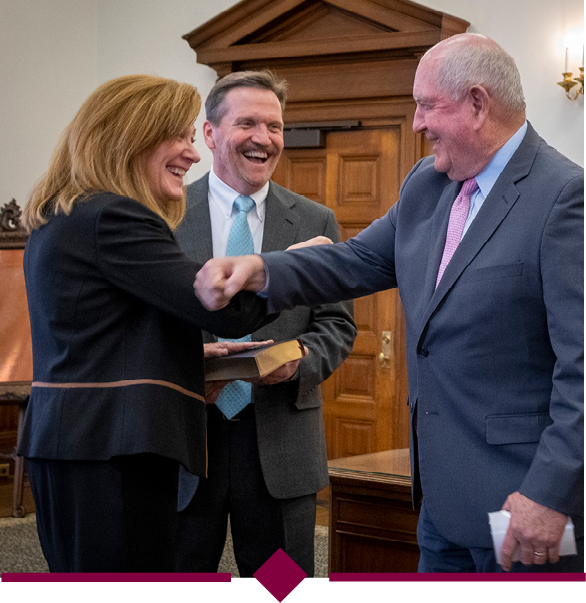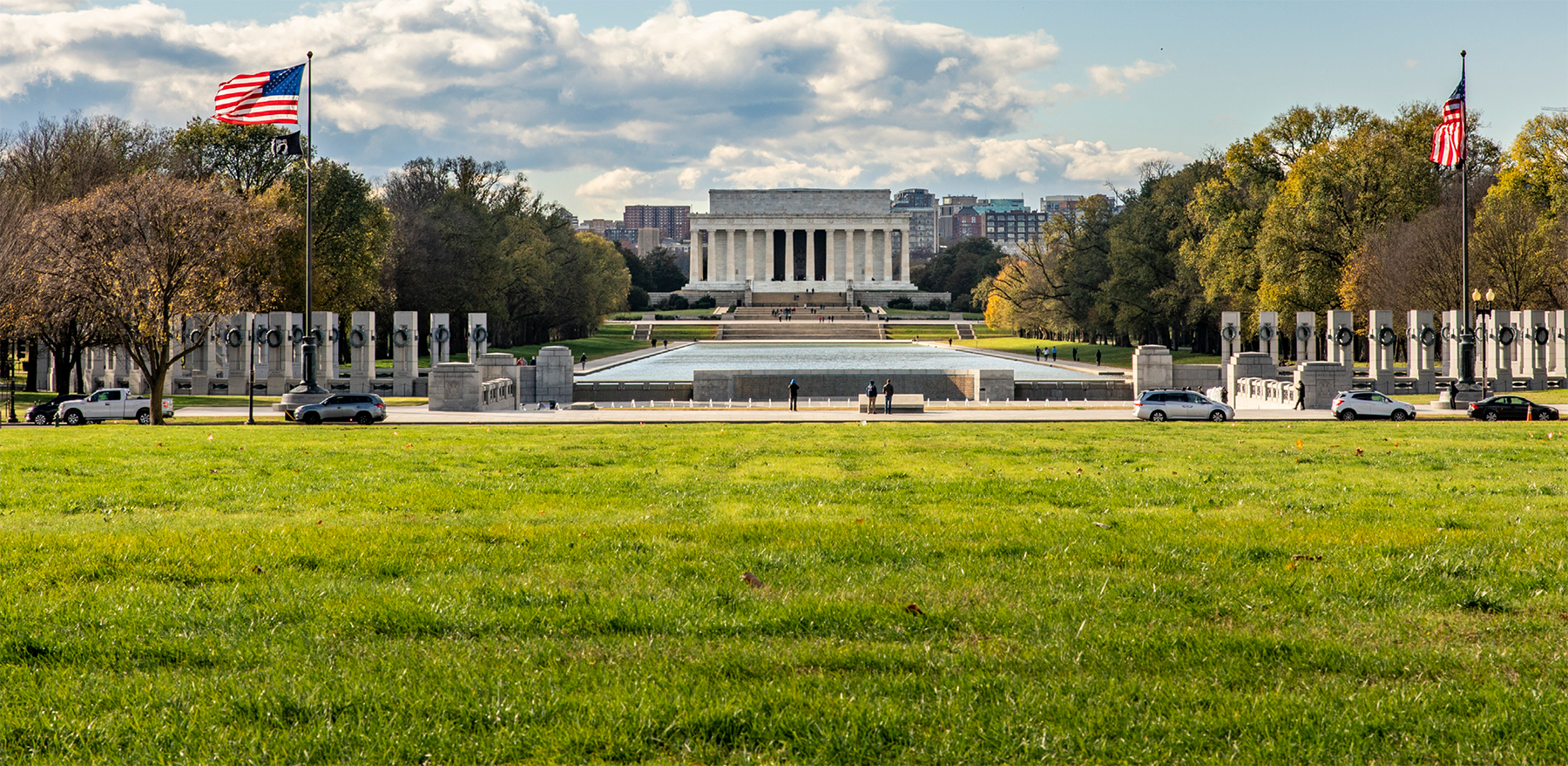There is no limit to the impact Hokies can have on the world after leaving Blacksburg. Need proof? Look no further than halls of government in Richmond and Washington, D.C., where CALS graduates are shaping the policies and laws that help society grow.
Though the work they do varies — from helping rural areas gain access to broadband to ensuring our stakeholders have a voice in decision making — they all have the same mission: help agriculture and life sciences communities thrive.
We reached out to three illustrious alumni who work in the highest levels of government to see what drives them, what they love about their work, and how CALS prepared them to make a difference in the world.
Carrie Chenery '08
Agricultural and Applied Economics and Environmental Policy and Planning
Minor in Political Science

Current job titles
- Founder and principal, Valley Pike Partners
- Member, Virgina Tech Board of Visitors
Former roles
- Executive Director, Shenandoah Valley Partnership
- Assistant Secretary of Agriculture and Forestry, Office of the Governor
- Manager of Legislation and Policy, Virginia Economic Development Partnership
- Director of Government Affairs, Williams Mullen
How did your experience in CALS help prepare you for your career?
I believe my classes in agricultural and applied economics had several basic themes that continue to positively impact me: constant adaptation for traditional industries; effective policy-making through differing points of view; community impact for the greater good; and making the numbers work. CALS has always taken a long-term, holistic view of the agriculture industry, its impact, and its potential.
Tell us about the path that led you into government relations.
I grew up thinking I wanted to be an environmental attorney, rooted in a vision to protect resources like my family’s Shenandoah Valley farm. I took a chance on an internship at Virginia Tech that allowed me to experience the Virginia General Assembly session during a spring semester. I was hooked.
What is the underlying passion for your work that motivates you?
My trajectory started on my family farm in my rural hometown, where I grew up convinced that developmental sprawl was threatening both the environment around us and our generational land. I believed there had to be a way for rural communities to thrive while retaining their character, and I still do. That interest grew into a greater passion for understanding the motivations and needs of businesses, communities, and individuals, which are often tied to economics. When you can align those needs (usually involving government) and the resulting impact is positive, that is powerful and motivating.
Bette Brand '82, '90
Animal Science
Masters in Business Administration

Current job title
Deputy Under Secretary, USDA Rural Development
Former roles
- Administrator, Rural Business-Cooperative Service, USDA Rural Development
- Chief Legislative Officer, Farm Credit of the Virginias
How did your experience in CALS help prepare you for your career?
From everyone I met in Block and Bridle's Little International to the alumni network, the connections were amazing. My husband is a Virginia Tech graduate from another college and he didn’t have anywhere near the network we had in CALS.
What issues are you working on these days?
There is a real health-care crisis in rural communities that we have to address. To solve this issue, we are working with partners to provide capital for hospitals and technical assistance to bring broadband to rural communities. Once you have high-speed internet, then you can have telemedicine, and there are some great examples of the impact you can make in rural communities through telemedicine, and to have that as a backup so rural communities are not isolated from medical care is imperative.
Most of us only have an idea of how the government works by what we see in movies or the media. What is it like from an insider’s perspective?
I remember one time I was talking to a group of farmers who were visiting Congressional staffers and someone asked if working in government was like “House of Cards.” No, it’s nothing like that! There are a lot of rules and as much as it seems like we are giving a lot of money away in grants, there is a lot of accountability and a lot of checks and balances in the system to make sure we do them as effectively and as intelligently as we can. We have a team of hardworking people who have a deep knowledge and passion for their work and great resiliency.
Matthew Lohr '95
Agricultural Education
Minor in Agricultural Economics

Former roles
- Administrator, Rural Business-Cooperative Service, USDA Rural Development
- Chief Legislative Officer, Farm Credit of the Virginias
How did your experience in CALS help prepare you for your career?
The professors were engaging, supportive, and extremely knowledgeable. Once I graduated, I realized why so many of them were recognized throughout the country. The friends I made and the networking experiences through so many clubs and extracurricular activities were also important. I was amazed during my career how I would get to work with so many people I got to know through my CALS experiences.
Tell us about the path that led you into government relations.
As an active Future Farmers of America member, I was fortunate to serve as both Virginia state FFA president and national FFA vice president. In these capacities, I was able to gain an appreciation for both politics and governmental relations.
Who has been one of your favorite leaders to work with and why?
Under Secretary of Agriculture Bill Northey, whose mission area included NRCS, the Farm Service Agency, and the Risk Management Agency. He was extremely knowledgeable, forward-thinking, and focused on helping the nation’s producers remain profitable and successful, especially during the challenging issues of the last few years.
What is the underlying passion for your work that motivates and drives you?
As a fifth-generation farmer, I know first-hand the challenges and obstacles America’s farmers and ranchers face every day. America experienced major flooding, wildfires, trade disruptions with China, and COVID-19 over the last few years. Serving as chief of NRCS allowed me to be in a position to look for ways to help our producers overcome these hardships and remain profitable.

